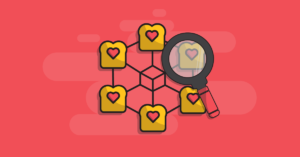
It’s a hot Summer day in August and you see a sign posted on the Santa Monica Pier in California, that reads “FREE Ice Cold Corona”. Using your mobile phone you scan the avatar, and the image of a Corona appears on your screen.
You walk over to a nearby bar and show it to the bartender, who scans it and hands you a corona, free of charge.
Now stop right there. You’re thinking QR codes! This…..is not that.
A QR code basically stores a URL. In this case it would have linked to a coupon that you took to the bartender to redeem. End of transaction.
The Corona that you scanned at the Pier is real, in the sense that it is digital, collectible, verifiable and finite. In fact you own that Corona just as if you’d walked into a liquor store and bought it. Which also means you can sell it. The ability to redeem it and/or sell it requires authentication of both you, and the digital good, in this case, the Corona.
However, it’s the authentication methodology which is what could permanently alter advertising…for the better.
The fictitious Corona story you just read about is made possible by Blockchain technology. Blockchain is basically a public database. Which is distributed across the web, constantly synchronized and protected by cryptography. If you want a good overview of blockchain, watch the TEDx talk by Daniel Gasteiger.
Bitcoin is the most popular and therefore, the best example of the blockchain network.
Brandon Tepper of Nasdaq, has this simple explanation of the popular Bitcoin blockchain:
In simple terms, blockchain is a database — but not your average database. The Bitcoin blockchain — technically a distributed public ledger — is an unalterable record of peer-to-peer transactions (often over 200,000 per day) that is transparent to all, and not reliant on a third party for management. Instead, a distributed transaction processing community (people referred to as “miners”) keep the system honest and do the intensive computing needed to “mine” Bitcoin and maintain the ledger. ( Brandon Tepper & Nadsaq)
Now imagine a peer to peer ad network where you could connect directly with your audience without the need to pass through the gates of traditional ad networks. Moving from highly centralized digital media conglomerates to a decentralized, peer to peer model. Which is exactly what happened to the likes of CBS, NBC and ABC when the internet gained critical mass and news production and dissemination, became highly distributed.
Here’s how I see this playing out. Companies will start creating interactive smart ads leveraging blockchains; enabling ownership, scarcity and authenticity of digital goods (aka Objects). Very similar to the Corona example.
The most powerful aspect of blockchain enabled advertising will be the use of blockchain for authentication and personal identity. Facebook, Twitter and Google are storing aspects of your identity (ie., username and password) to provide services such as single sign-on to various websites and platforms. They then monetize your identity and web behavior for advertising, to sell products and services, and more.
As far as I can tell, no one wants to trust an individual company with all of their identity: insurance information, social security number, shopping patterns, logins, etc. To date, there has been no place to aggregate that data. Now, it can run on blockchain and it’s only owned by one person, which is you.
As identity becomes more power and secure on blockchain, we may be willing to give up a portion of our identity for value. But it will be a positive experience as opposed to the more negative experience which is common today. How many times have you given over your name, phone number and email address only to be relentlessly spammed. It’s all too common.
Let’s play this out in a real world example. Say that I’m a 55 year old, overweight diabetic, that smokes and loves basketball. It’s not useful to get ads for pizza, but it would be useful to get ads for a meal program for diabetics. But I don’t want to reveal that I’m a diabetic. In the right context I could put out that portion of my identity anonymously and receive what I want in return.
What impact will this have on programmatic media buying, which currently targets audiences, and their behavior? Will they target certain aspects of their identity?
Starting to make sense? I’m not exactly sure how this is going to play out, but identity will be at the core of advertising. And as digital citizens our identity is our most valuable asset.
As a marketer, it’s important to pay attention to how this could be used to market and sell goods and services in the coming years. And trust me, it’s coming.
Have questions or comments; reach out on Twitter @davidbaeza
I would love to hear from others on this topic, so please share. Thank you.
Special thanks to Vatomic.